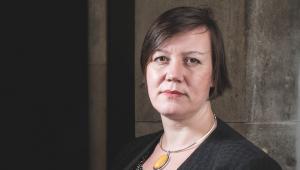The publication of the Boundary Commission for England’s plans for new parliamentary boundary has received heavy press coverage. Inevitably a lot of this has focused on the fate of some high profile MPs, and the possibility of increasing the country’s democratic deficit through the reduction of the number of parliamentarians in the House of Commons from 650 to 600.
However, some of this coverage is speculative in nature. We won’t know until 2018 the details of the boundaries on which constituencies will be fought in the 2020 election. And we don’t really know what the effect will be on politics both national and local.
What we do know is that it will create uncertainty in Westminster – and is likely to have an impact on the devolution agenda, too.
It’s early days but here are what I think could be some of the likely outcomes.
• MPs may find themselves distracted from their parliamentary activities. For some this will be because they are having to deal with reselection battles; for others it will be because they are having to prepare to campaign in a new constituency without the benefit of incumbency. This probably won’t affect the government’s legislative programme but it may affect scrutiny in select committees and the quality of scrutiny in Public Bill Committees, as MPs direct their time to the more pressing business of reselection and re-election. For progress on devolution, it could mean that the progress of deals – and a continued focus on pursuit of the devolution policy in the heart of government – is not held to account as effectively by MPs;
• Some MPs – those who fail to be reselected and/or those who choose not to stand again – may start to be more independent-minded. This may serve, in contrast to the point above, to enhance parliamentary scrutiny, and place government under pressure to do more to pas power down to local levels;
• In areas where prominent MPs have been a driving force in pushing forward devolution, the possible disappearance of those people from the current political scene may cause uncertainty and difficulties both for local areas and for government.
For local areas, this will bring additional uncertainty. Between now and 2018 comes a period during which local authorities can attempt to capitalise on what they have achieved so far, and can use existing channels to try to achieve more. Local areas will need to press on with more, and more ambitious, deals while the opportunity exists.
The pace of this exercise reflects the fact that between 2018 and 2020, boundary changes will lead to the reorganisation of political parties at a local level and the ramping up of the 2020 general election, not to mention the need to direct resources (parliamentary and otherwise) to the Brexit negotiations, which will presumably by then be in full swing.
The next two years, therefore, are crucial in embedding some results for local areas that are as positive as possible, and arguing successfully for more powers. This will be important if devolution is to maintain momentum over the 2018-20 period, which is likely to be more politically febrile.
Effective member-led scrutiny at local level can help to play a part in this. Local councillors, through scrutiny, can keep up pressure to continue to argue for strong deals which will make a difference for local people; they can help to demonstrate and promote an appetite within the local area for more powers. They can also help to draw together the evidence to support new proposals to government. Even where combined authorities have been set up and the election of Mayors is on the horizon, good scrutiny can still – in the next two years – help to get that message across both to government and to local people. Beyond 2018 at the latest, all bets are off – the prospect of boundary changes and Brexit will make Westminster a strange and unpredictable place, and government’s (and parliamentarians’) interests are likely to have moved elsewhere.




















